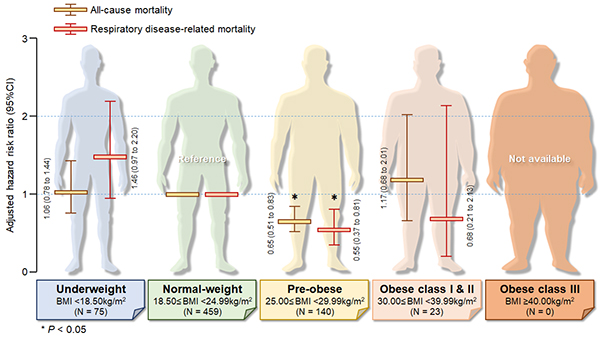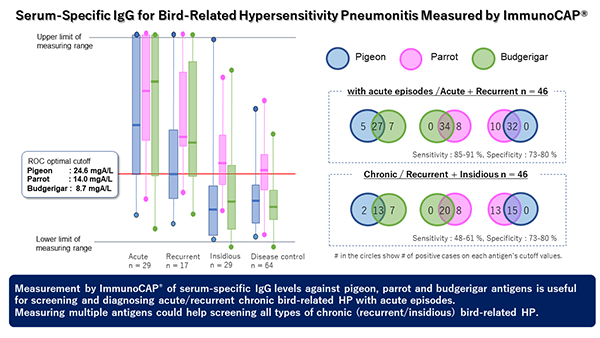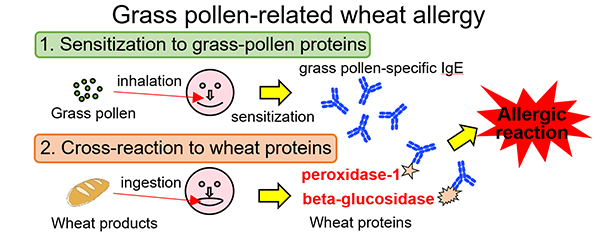Volume 70, Issue 2 (April 2021)
Editor's Choices
Editor’s comment: Accumulating evidence indicates that obesity is a risk factor for severe and difficult-to-treat asthma. Yano et al. investigated the correlation between obesity and asthma-associated long-term mortality in Japanese adults using data from the Omuta City Air Pollution-Related Health Damage Cohort Program. The authors showed that among 697 adult patients with asthma, 439 died during the median observation period of 26.3 years. They found that the pre-obese group had a significantly reduced risk for all-cause and respiratory-disease–related mortality related to the normal-weight group. Their findings suggest that appropriate nutrition may help reduce all-cause and respiratory-disease–related mortality among Japanese asthma patients.
Editor’s comment: Although bird antigens are known to be relevant in hypersensitivity pneumonitis (HP), the measurement of bird-specific antibodies has not been standardized. In a multicenter clinical study, Shirai et al. attempted to clarify the utility of serum IgG and IgA antibodies to bird antigens in screening and diagnosing acute/chronic bird-related HP. They found that measuring the levels of serum IgG/IgA against pigeon, budgerigar, and parrot antigens by ImmunoCAP® was useful for screening and diagnosis in bird-related HP.
Editor’s comment: Wheat-induced food allergies are seen as an immediate-type wheat allergy in young children and as wheat-dependent, exercise-induced anaphylaxis (WDEIA) in adolescents and adults. Some patients with WDEIA are negative for omega-5 gliadin-specific IgE but positive for grass pollen-specific IgE. In this study, Ogino et al. aimed to clarify clinical characteristics and causative wheat allergens in these WDEIA/wheat allergy patients. They found that specific IgE to grass pollen proteins cross-reacted with water-soluble wheat proteins, causing wheat allergies. They also found that peroxidase-1 and beta-glucosidase are candidates for cross-reactive wheat allergens.





